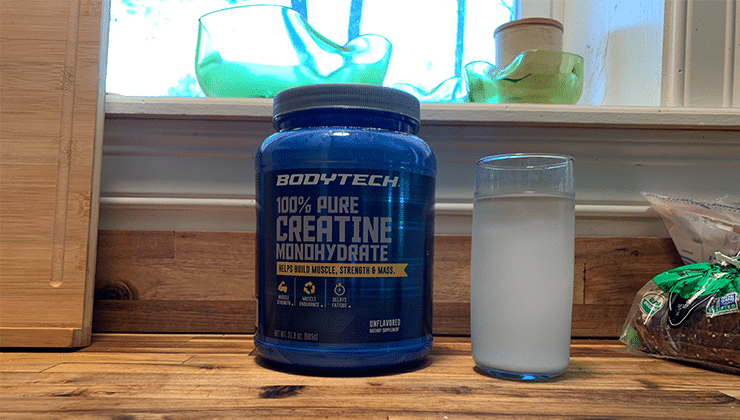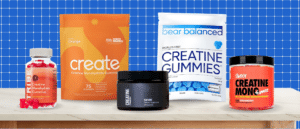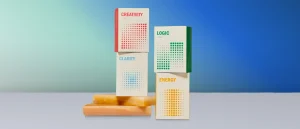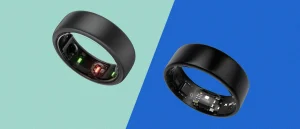All the Cool Kids Are Taking Creatine for Brain Health. Here’s Why You Should, Too
- By Will Price
- Fact-Checked by Joy Ferguson
- August 14, 2023
Supplementing creatine isn’t new; it’s one of the most researched (and research-supported) supplements available today. What is novel, though, is why people in the know are taking creatine. Traditionally taken to support muscle-building, the latest wave of creatine research—and interest—comes from its potential as a brain-boosting supplement. But why, and why now? To answer key questions, we’ve enlisted the expertise of Louisa Nicola, a neurophysiologist and CEO of Neuro Athletics. Here’s what you need to know about supplementing creatine for brain health.
What Is Creatine?
Creatine helps your body produce adenosine triphosphate (ATP), which works like fuel for the stuff your cells do. Most of the creatine in your body is stored within skeletal muscles, but it plays a role within the brain. Research has found that supplementing your creatine stores daily provides the cells that carry creatine—mostly muscle and brain cells—with more energy.
If you’re not supplementing with creatine, most of the creatine within your body is gathered from your diet—red meat, fish, etc.—or created within your own liver and brain cells. According to a 2022 study in Nutrients, “While the vast majority of creatine is synthesized in the kidneys and liver, creatine can also be endogenously synthesized in the brain.” (1)
How much creatine should you take for brain health?
“The traditional 5g daily dosage is widely used and considered sufficient for most individuals interested in brain health benefits,” Nicola says. There are some studies pushing higher dosages, but mostly those dealing with neurodegenerative diseases (like Alzheimer’s) that have already begun to manifest, or during the recovery period after a traumatic brain injury like a concussion.
Benefits of Supplementing Creatine for Brain Health
May help with cognition
Supplementing creatine may improve short-term memory, intelligence, reasoning, and more (2), but as is the case with any purported benefit of creatine for brain health, there’s still a lot of research to be done. For example, the linked review of studies found short-term memory, intelligence, and reasoning were improved by creatine supplementation; it also found creatine supplementation had conflicting or no effects on “long-term memory, spatial memory, memory scanning, attention, executive function, response inhibition, word fluency, reaction time and mental fatigue.”
Thus far, it’s proven especially beneficial in older adults, where studies have found it to consistently boost memory function (3).
May help protect the brain from some neurodegenerative diseases (like Alzheimer’s)
We know neurodegenerative diseases like Alzheimer’s, Parkinson’s, ALS, and different forms of muscular dystrophy are presently incurable and difficult to stave off and treat. We also know creatine supports brain health, which is one reason why researchers are angling to find if supplementing creatine may be a viable preventative approach. As it stands, it’s a mixed bag.
There are scant few human clinical trials that suggest that creatine may help ward off or delay the onset of neurodegenerative diseases like Alzheimer’s (4), but virtually no human studies have proven its effectiveness against other brain diseases like Parkinson’s (5). Animal studies, however, have yielded more promising results to date.
“Animal studies have shown that creatine may offer neuroprotection in neurodegenerative diseases like Huntington’s disease, Parkinson’s disease, and ALS,” Nicola says. “However, human trials have not fully replicated these effects, showing limited therapeutic benefit in patients with these conditions.”
In short, it’s too soon to tell if supplementing creatine acts as a ward against future neurodegenerative diseases.
May help recover from brain injuries (like concussions)
“Studies have shown promising results regarding creatine’s potential in mitigating the damaging effects of traumatic brain injury, but further research is necessary to establish its clinical applications,” Nicola says. This might sound familiar, because it is. Studies into creatine’s potential as a post-concussion (and other brain trauma) therapy are new but promising.
One study (6) found giving creatine to kids and adolescents after traumatic brain injuries improved recovery in a wide array of measurable outcomes: “duration of post-traumatic amnesia (PTA), duration of intubation, intensive care unit (ICU) stay, disability, good recovery, self-care, communication, locomotion, sociability, personality/behavior, and neurophysical and cognitive function.”
Do note: post-brain injury should absolutely and unequivocally be undertaken by a medical professional.

Downsides of Supplementing Creatine for Brain Health
Research is still very raw
You may have noticed that all of the benefits of taking creatine for brain health began with things creatine supplementation “may” help with. Though brain health is the subject matter de jour in creatine research, it remains decades behind research focused on muscle-building, strength, and athletics.
There’s some evidence that brain creatine levels are somewhat independent of external sources—AKA supplementation or dieting. One study (7) compared the cerebral creatine levels of vegetarians and omnivores and found that, despite taking in a significantly lower amount of creatine through their diet, vegetarians had virtually the same level of creatine within their brains. At the same time, some research has found, in people with unusually low levels of brain creatine, creatine supplementation has shown positive effects (8). Differences in age, sex, dosage, and more may account for different outcomes. What does this mean? Research into creatine supplementation and the brain remains very much in progress, so take bold claims about its cranial benefits with a grain of salt.
The Bottom Line
There are few downsides to supplementing creatine for any reason—it’s relatively cheap, it’s easy to fold into your routine, and is considered safe for most people, but to be safe, and particularly if you have a medical condition or are on any medications, consult with your health care provider before taking a creatine supplement. Research on its impact on brain health is promising, but very early. Given the lack of detrimental side effects and favorable upsides (not to mention exercise-boosting fundamentals), supplementing creatine is a safe bet, no matter how you spin it.
References
1. Forbes, Scott C. et al (2022). Effects of Creatine Supplementation on Brain Function and Health. https://www.ncbi.nlm.nih.gov/pmc/articles/PMC8912287/
2. Avgerinos, Konstantinos I. et al (2018). Effects of creatine supplementation on cognitive function of healthy individuals: A systematic review of randomized controlled trials. https://www.ncbi.nlm.nih.gov/pmc/articles/PMC6093191/
3. Prokopidis, Konstantinos et al (2023). Effects of creatine supplementation on memory in healthy individuals: a systematic review and meta-analysis of randomized controlled trials. https://pubmed.ncbi.nlm.nih.gov/35984306/
4. Aksenov, M Y et al (1997). The expression of creatine kinase isoenzymes in neocortex of patients with neurodegenerative disorders: Alzheimer’s and Pick’s disease. https://pubmed.ncbi.nlm.nih.gov/9270056/
5. Ravina, B M et al (2003). Neuroprotective agents for clinical trials in Parkinson’s disease: a systematic assessment. https://pubmed.ncbi.nlm.nih.gov/12707423/
6. Sakellaris, G et al (2006). Prevention of complications related to traumatic brain injury in children and adolescents with creatine administration: an open label randomized pilot study. https://pubmed.ncbi.nlm.nih.gov/16917445/
7. Yazigi Solis, Marina et al (2014). Brain creatine depletion in vegetarians? A cross-sectional ¹H-magnetic resonance spectroscopy (¹H-MRS) study. https://pubmed.ncbi.nlm.nih.gov/24290771/
8. Fernandes-Pires, Gabriella et al (2022). Current and potential new treatment strategies for creatine deficiency syndromes. https://pubmed.ncbi.nlm.nih.gov/34972654/











